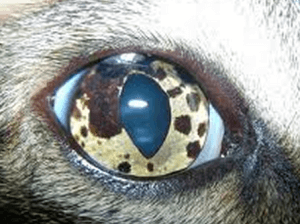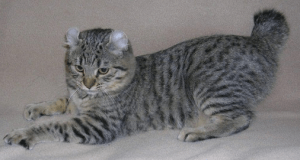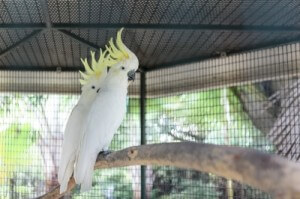 Mice make great entertaining pets, they are curious, energetic and adventurous. Is a pet mouse right for everyone? No, mice need a lot of attention and care to ensure that their short lives are healthy and well lived. Some one who is afraid of mice, or who has small children will not make great owners.
Mice make great entertaining pets, they are curious, energetic and adventurous. Is a pet mouse right for everyone? No, mice need a lot of attention and care to ensure that their short lives are healthy and well lived. Some one who is afraid of mice, or who has small children will not make great owners.
Mice are delicate animals that require a clean environment, lots of stimulation and an abundance of available food and water. You can purchase mice form a pet store, but these mice have most likely been bred in a rodent mill, resulting in sickly or disease prone animals. You should research a mouse breeder in your area. Mice have been bred for hundreds of years. There are many different colors and sizes, but the white mouse is probably the most common.
If you have decided on a pet mouse, there are a number of things you should consider. Are you going to own a female or a male? Females do better when they have company, so it’s suggested that you purchase three females at the same time to keep together in the same enclosure. Males on the other hand must be kept separate because they will fight, often to the death. There have been successful cases of males co-habitating, but they were introduced at a very early age, around 4 weeks. It’s also unadvised that you keep a male and a female together. Mice breed extremely rapidly, so you don’t want to keep them together, birth is really hard on the females, and they can become pregnant as early as 4 weeks. Mice litters also tend to be numerous, so unless you know what you are doing, do not place a male and a female in the same cage.
Before you bring your mouse home you should prepare the cage at home for an easy transition. Moving from home to home can be stressful, by having the mouse’s new home ready for him helps in making their new life smoother. The size of cage depends on how many mice you intend to keep and how big the mice are. A mouse can squeeze through an opening as big as 1/2 inches. The rule of thumb is if a mouse can fit their head through an opening, they can fit their whole body through. So is you choose a wire cage, the bars should be spaced 1/4inches apart to safely and securely hold you pet. You may also choose to keep them in an aquarium, but this comes with its own disadvantages.
In order to keep your mouse healthy you must spot clean your cage twice a week and clean the entire cage once a week. If you have an aquarium, you might be cleaning the enclosure more often because the glass will make the ammonia more potent and harmful because the odors are trapped, where a wire cage allows air through, not to mention climbing possibilities for the mouse.
On the side of the cage you should attach a large water bottle, or two small ones for your mouse to drink from. Mice might be tiny, but they need frequent hydration and food. You can buy mouse food from the pet store, but you can also give you mouse some treats form around the house. Mice enjoy dog treats, carrots, apples, bananas, and more fruits and vegetables. You can research what domesticated mice like to eat and find what your pet likes best.
You should change the water bottles and food dishes once a week, giving everything a proper cleaning. Use soap to clean the dishes and cage, but be sure to rinse well with water. You can even clean the cage with vinegar and water solution. This helps to kill odors and keep the enclosure fresh. Males tend to have a muskier odor than females, which means you may need to clean a male’s cage more often.
You can buy wood chip bedding for the enclosure, but you can use shredded paper as well, not news print though, the ink is harmful to mice. If you purchase wooden bedding make sure the chips are not made from pine or cedar. These types of wood can cause breathing problems for your mice.
You should also place toys and hidey holes for your mouse inside the cage. These can be household products, or store bought. Mice love climbing through flower pots or tubes from paper towel or toilet paper. You can also give them kleenex or cotton pods for them to shred and use for a nest. you can tie a string in a wire cage and enjoy watching your mouse hang from it. You can give them chew toys to help them grind their teeth down as well. You can find great wooden toys from your local pet shop, or give untreated wood pieces from an art store.
If you suspect that your mouse is sick, take it to the vet right away. Illnesses that affect mice include, lice, breathing difficulty, and colds. If your mouse is kept in an area too hot, it can suffer from heat stroke and die, to keep you mouse cool you can place ice cubes in the cage to help them fight the heat. Alternately, you should not keep you mouse close to an air conditioning vent, your mouse could catch hypothermia.
To find the right vet for you mouse, make sure that the vet specializes in treating small exotic animals. Now that you’re well informed about mice, we hope you find the perfect one to keep as your pet!
 We are moving. As a result Celebration Veterinary Hospital will be closing under current ownership. Please forward medical records requests to
info@celebrationvet.com. Records will be furnished within 5 business days. It has been a pleasure serving you and your pet family members for seven years. Celebration Veterinary Hospital
We are moving. As a result Celebration Veterinary Hospital will be closing under current ownership. Please forward medical records requests to
info@celebrationvet.com. Records will be furnished within 5 business days. It has been a pleasure serving you and your pet family members for seven years. Celebration Veterinary Hospital




















 Website Created by TCP Global Solutions
Website Created by TCP Global Solutions